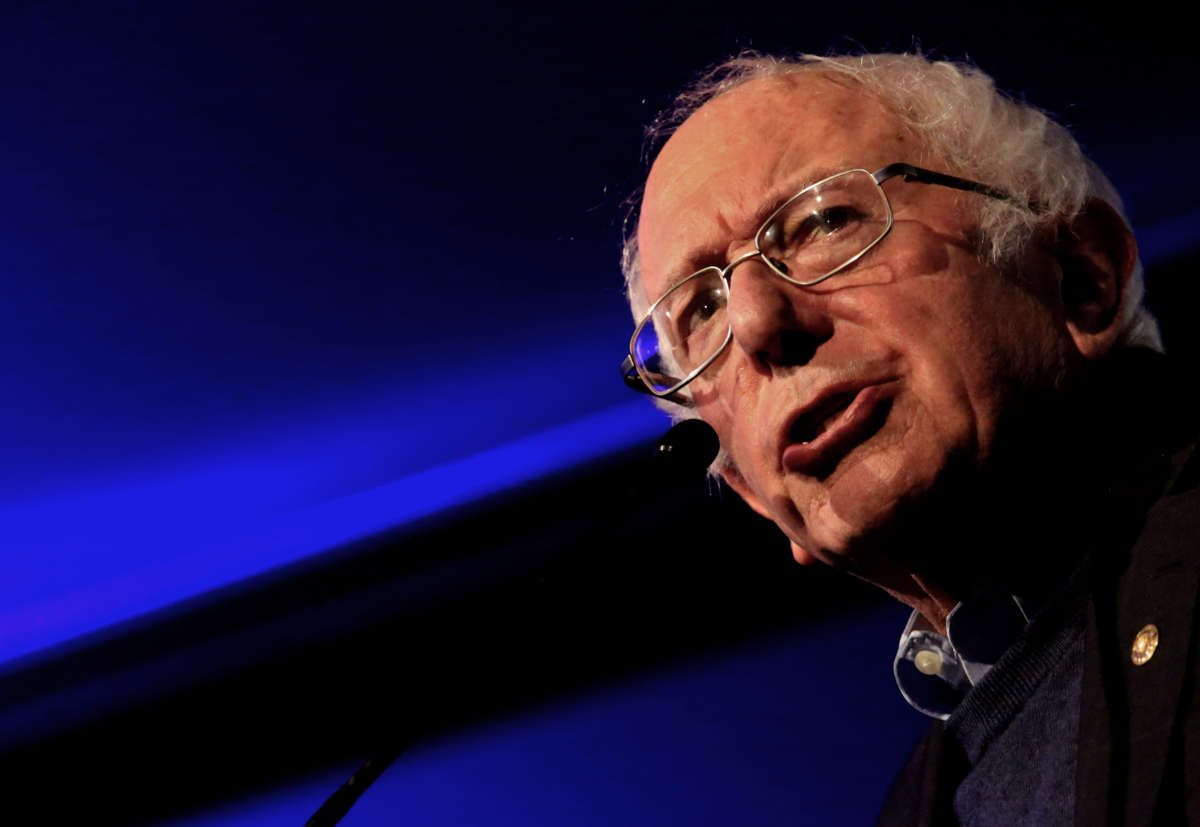Democrats are currently considering including a tax break for the wealthy in the reconciliation bill — but Sen. Bernie Sanders (I-Vermont) has rejected the proposal, calling the idea “beyond unacceptable.”
Democrats are debating adding a repeal of the SALT tax deduction cap for five years in their Build Back Better Act. Under the current cap, the policy allows taxpayers to deduct local and state taxes up to $10,000 against federal income taxes. The limit was set by Republicans in 2017 in their massive tax overhaul to help pay for their tax cuts for corporations and the wealthy. If the cap is repealed, the wealthy would be allowed to pay even less taxes than the already low rates given to them by Republicans.
Because the proposal almost exclusively favors the wealthy and the 1 percent, progressives are vehemently opposed to the idea.
“According to media reports, Democratic negotiators are working on a repeal of the SALT deduction cap for up to five years, which would cost $475 billion and give the richest 5 percent $400 billion in tax cuts,” Sanders said in a scathing statement on Tuesday. “As a result, the top 1 percent would pay lower taxes after passage of the Build Back Better plan than they did after the Trump tax cut in 2017. This is beyond unacceptable.”
Throughout their campaigns, Democrats and progressive lawmakers have promised to raise taxes on the wealthy to take steps toward narrowing the growing wealth gap between the ultra-wealthy and the rest of the country — and by repealing the SALT cap, they would essentially be doing the opposite.
A full SALT cap repeal, as conservative Democrats are suggesting, would be incredibly regressive; the nonprofit Committee for a Responsible Federal Budget wrote earlier this year that “repealing the SALT cap would be more regressive than the [2017 Tax Cuts and Jobs Act].”
The committee found that while the bottom 90 percent of earners would get little-to-no benefit from the repeal, the 90 to 99th percentile would save nearly $2,500 a year, while the top 1 percent would save a whopping $35,660 a year per average household. The repeal would be such a huge benefit to the rich that the bill would end up delivering a net tax cut for the wealthiest Americans, even with proposed tax hikes.
Tax relief for the bottom 60% would average only $6 per household, including $15 per household in the middle quintile. 🔗 https://t.co/U6Aaujkayw pic.twitter.com/yfkyTxPYyX
— CRFB.org (@BudgetHawks) July 14, 2021
“At a time of massive income and wealth inequality, the last thing we should be doing is giving more tax breaks to the very rich. Democrats campaigned and won on an agenda that demands that the very wealthy finally pay their fair share, not one that gives them more tax breaks,” Sanders said. “I will not support more tax breaks for billionaires.”
He told reporters that he would be open to a compromise approach that would lift the cap only for those making less than $400,000 a year, which is the level of income that President Joe Biden has said he won’t raise taxes on.
Conservative Democrats like Rep. Josh Gottheimer (D-New Jersey) have been insistent on including the SALT repeal, with nearly two dozen representatives vowing to vote against the bill if the repeal, which could potentially be retroactive to this tax year, isn’t included. Progressives like Representatives Alexandria Ocasio-Cortez (D-New York) and Pramila Jayapal (D-Washington) have said that they would support a partial repeal as Sanders suggested, but not a full repeal.
The Committee for a Responsible Federal Budget found that the repeal, if passed, would be the costliest part of the reconciliation bill; over five years it would cost $475 billion, and could prepare the country for $1 trillion in tax cuts nearly exclusively for the wealthy over 10 years. That cost adds up to over half of the current $1.75 trillion framework that is so embattled in Congress.
Conservative Democrats’ support of the repeal is especially heinous because they’ve fought tooth and nail against proposals that would help the middle and lower classes like the prescription drug price negotiation plan. Further, these representatives are aligned with Sen. Joe Manchin (D-West Virginia), who complained on Monday that the reconciliation bill was too expensive even without the SALT cap repeal, even though the bill in its current form is entirely paid for.
Manchin has kept noticeably mum about the idea of a repeal, despite being a supposed deficit hawk, showing that his complaints about the federal deficit and the cost of legislation serve as a strategy of obstruction more than anything else.
Press freedom is under attack
As Trump cracks down on political speech, independent media is increasingly necessary.
Truthout produces reporting you won’t see in the mainstream: journalism from the frontlines of global conflict, interviews with grassroots movement leaders, high-quality legal analysis and more.
Our work is possible thanks to reader support. Help Truthout catalyze change and social justice — make a tax-deductible monthly or one-time donation today.
